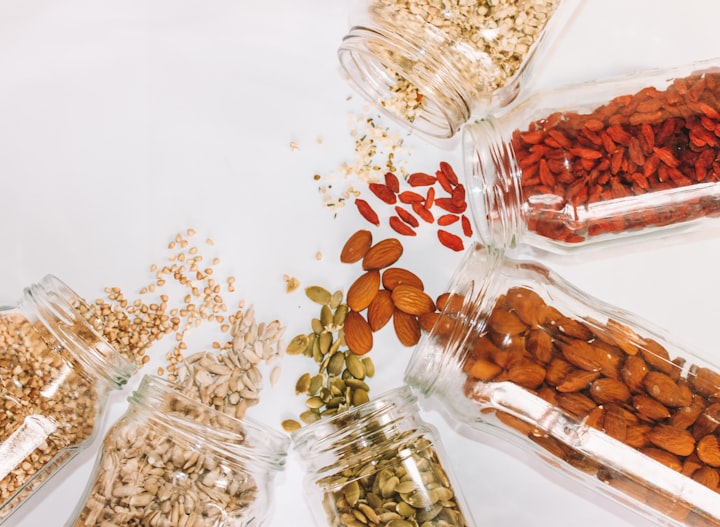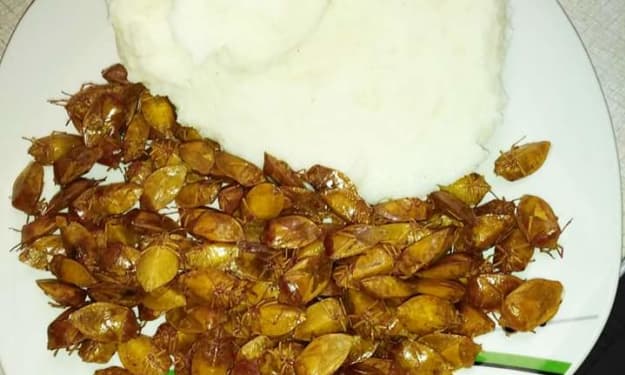The Health Benefits of Eating Seeds | Robert J. Winn
Robert J. Winn explores one of the most overlooked healthy foods: seeds.

Seeds are often overlooked as a healthy food choice, but they are packed with essential nutrients and health benefits. Seeds are a great source of protein, fiber, healthy fats, vitamins, and minerals. Incorporating seeds into your diet can help to improve your overall health and wellbeing.
Here are some of the health benefits of eating seeds:
Good source of fiber: Most seeds are rich in fiber, which helps to keep you feeling full for longer and promotes healthy digestion. Fiber is also essential for maintaining healthy blood sugar levels and reducing the risk of heart disease.
High in protein: Many seeds are also a great source of plant-based protein, which is essential for building and repairing muscles, tissues, and organs. Plant-based protein is also easier for the body to digest and absorb than animal-based protein.
Packed with healthy fats: Seeds are rich in healthy fats, such as omega-3 fatty acids, which help to reduce inflammation and promote heart health. Omega-3 fatty acids are essential for brain function and may also help to reduce the risk of certain types of cancer.
Source of vitamins and minerals: Seeds are also a great source of vitamins and minerals, such as vitamin E, magnesium, zinc, and calcium. These nutrients are essential for healthy bones, skin, and hair, and can also help to boost your immune system.
Can help to reduce the risk of chronic disease: Eating seeds may help to reduce the risk of chronic diseases, such as heart disease, diabetes, and cancer. The high fiber content of seeds helps to reduce cholesterol levels and improve blood sugar control, while the antioxidants in seeds help to protect the body against oxidative stress and inflammation.
Can aid in weight management: The combination of protein, fiber, and healthy fats in seeds can help to keep you feeling full for longer and reduce cravings for unhealthy snacks. This can make it easier to manage your weight and maintain a healthy diet.
So, what are some of the best seeds to eat for optimal health?
Chia seeds: Chia seeds are a great source of fiber, protein, and omega-3 fatty acids. They can be added to smoothies, oatmeal, or yogurt for a nutritious and filling breakfast.
Flaxseeds: Flaxseeds are rich in fiber and lignans, which have been shown to have anti-cancer properties. They can be ground up and added to baked goods, or sprinkled on top of salads and oatmeal.
Pumpkin seeds: Pumpkin seeds are a great source of protein, magnesium, and zinc. They can be roasted and eaten as a snack, or added to salads and trail mix.
Sunflower seeds: Sunflower seeds are rich in vitamin E and selenium, which are important for healthy skin and immune function. They can be eaten on their own as a snack, or added to salads and baked goods.
Sesame seeds: Sesame seeds are a good source of calcium and iron, which are important for healthy bones and red blood cells. They can be sprinkled on top of stir-fries, salads, or roasted vegetables for added flavor and nutrition.
Seeds are a nutrient-dense food that can provide a range of health benefits. So, the next time you're looking for a healthy snack or ingredient to add to your meals, consider reaching for some seeds.
About Robert J. Winn
Family physician Robert J. Winn has been serving the needs of vulnerable individuals in New Jersey for over a decade. As a medical professional, he has a passion for helping people improve their health and make informed decisions regarding their wellness. Due to his own health challenges that he has overcome, he now has a heightened passion for helping others.
Visit DrRobertJWinn.com to learn more!
About the Creator
Robert Winn
Family physician Robert J. Winn, who is based in Haddon Township, has over 15 years of experience. He is dedicated to providing the best possible care to his patients and working with those who face barriers to healthcare.






Comments
There are no comments for this story
Be the first to respond and start the conversation.